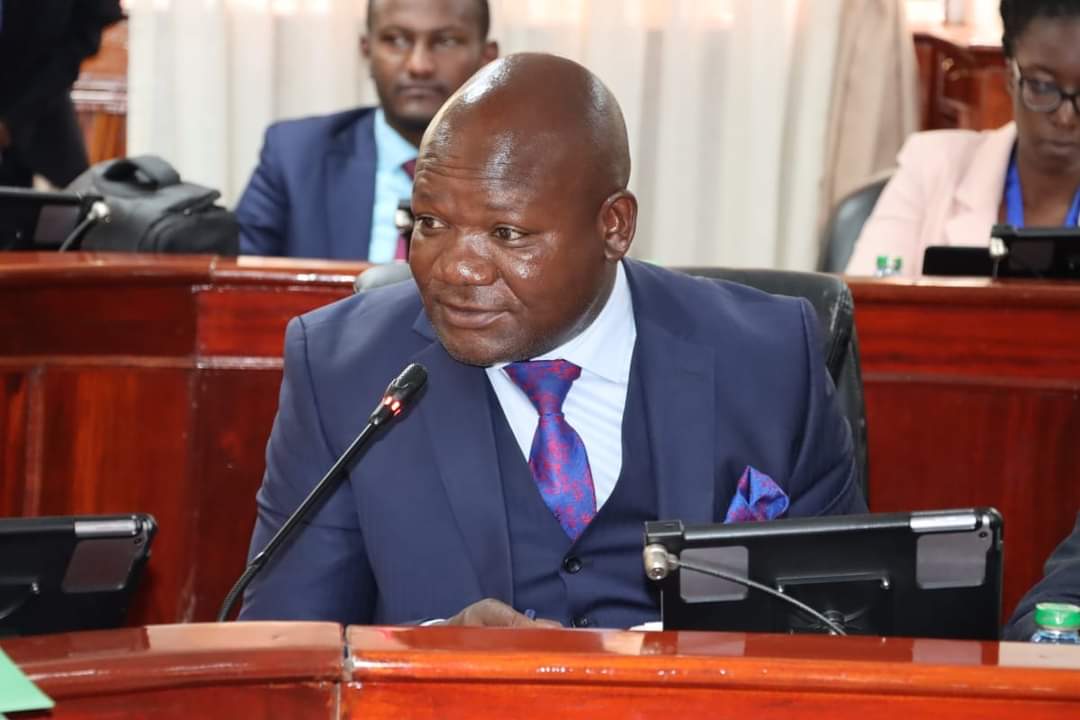A storm is brewing between county governors and senators over the proposed revenue sharing formula by the Commission on Revenue Allocation (CRA), with governors calling for it to be thrown out completely, citing unfairness and impracticality.
While appearing before the Senate Finance and Budget Committee on Thursday, the governors described the framework as flawed and discriminatory, warning that if adopted, it would hurt service delivery and deepen inequality across counties.
The committee is currently reviewing the proposed formula, which will determine how counties share revenue from the 2025/26 financial year.
Led by Kakamega Governor Fernandes Barasa, who chairs the Council of Governors’ Finance Committee, the county chiefs argued that the parameters used were not only vague but also heavily skewed.
Barasa told senators, “What we are saying is that the proposed revenue sharing formula is flawed and discriminatory and should be overhauled.”
He stressed that the current draft would cause heavy losses to more than half of the counties.
“We cannot have a formula that is going to disadvantage other counties,” he said, adding that the Council of Governors believes in a system that is fair, transparent, and efficient.
Barasa was flanked by Kiambu Governor Kimani Wamatangi, Mombasa Governor Abdulswamad Nassir, Lamu Governor Issa Timamy, and Nakuru Deputy Governor David Kones.
The team urged senators to review the formula’s structure, warning that the current proposal, if passed, would see 31 counties lose billions in funding.
One of the contentious issues is CRA’s decision to give the ‘population’ a weight of 42% in the formula, up from the current 18%.
In previous versions, population was weighted at 45%. The proposal also increases the weight of geographical size from 8% to 9%, while the equal share has risen from 20% to 22%. The poverty index remains at 14%.
The formula also introduces a new component – income distance – which aims to measure inequality based on county revenue-generating abilities.
The CRA argues that this parameter helps address disparities and promote development.
But Governor Barasa dismissed the income distance metric, saying, “The parameter on income distance should be elaborated and subjected to a wider stakeholder engagement or dropped for a more widely acceptable parameter.”
He said the approach could discourage counties from improving their economic performance, as those with lower output would receive higher allocations.
“This will, in the long run, compound income and productivity inequalities,” Barasa warned.
Mombasa Governor Abdulswamad Nassir took issue with the continued reliance on the poverty index, which he said penalises progressive counties and unfairly rewards those that have remained poor.
“We should not be seen to be rewarding poverty; that the poorer you are, the more money you get,” Nassir said.
But senators were unimpressed by the governors’ written presentation, accusing them of making shallow submissions without offering concrete alternatives.
Committee chairperson and Mandera Senator, Ali Roba, criticised the document, saying, “If we were to go with your written submission, it is the shallowest you have ever presented in a very critical issue such as this.”
“This only says one thing to me: a lot of thought has not gone into this presentation before coming before this committee. The only minor remedy that came out was your verbal submission,” he added.
Roba warned the governors that they must be more prepared when engaging on key national matters.
“In future, this is a very critical issue that is going to affect you very seriously. You need to sit in it. You don’t criticise without making counter proposals, otherwise, it just becomes an academic exercise,” he said.
Faced with criticism, the governors asked for more time to revise their proposals.
The committee granted them until Wednesday next week to table a stronger submission that could stand scrutiny and lead to consensus.
Meanwhile, Kakamega Senator Boni Khalwale sought the governors’ views on shelving the proposed changes and sticking with the current formula for another five years, as South Africa does with its system.
“In South Africa, they retain a formula for 10 years. What will be your opinion if we recommend the retention of the current formula?” Khalwale asked.

